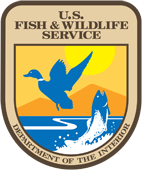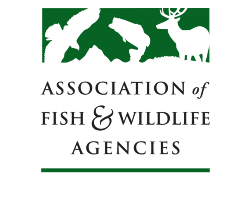2022 - 2024 Facilitation of National R3 Strategies
Strategic Priority
Recruitment, Retention, Reactivation (R3) - Hunting and Shooting Sports Access and Infrastructure
Project Documents
Project Description
The Council to Advance Hunting and the Shooting Sports (Council) was founded in 2009 as an action item from the 2008 White House Conference on North American Wildlife Policy that called for "Creating a hunting and shooting foundation similar to the Recreational Boating and Fishing Foundation." Since its inception, the Council has operated to "facilitate the promotion and growth of hunting and the shooting sports and the education of the public on the contributions that hunters and shooters make towards wildlife conservation." The Council has facilitated hunting and shooting sports recruitment, retention, and reactivation(R3)efforts nationally, resulting in agencies, nonprofits, and industry readily adopting R3 as a business practice, not just a program. As the Council has facilitated increases in the stakeholder base and the R3 capacity of those partners (e.g., the first state-level R3 coordinator was hired in 2015; today, most state agencies have one or more R3 positions), the Council's capacity has not increased accordingly. Discussions with the 32-member Council Board of Directors (made up of the leadership of agencies, NGOs, and industry that are vested in hunting and shooting sports) resulted in the determination that the Council needs increased, long-term, sustainable funding to continue to operate in its unique role as a facilitator of the National R3 Initiative and serve the increased needs of the growing community. The Council proposes a three-year Multistate Conservation Grant to increase operational capacity to address the increased demand from professionals and the general public. The R3 community and participation in hunting and shooting sports have grown substantially in recent years. That has created substantial demand for more accurate and readily available data, increased facilitation and coordination, consistently updated best practices, increased investment in regional efforts, and improved training for R3 professionals. The 15 objectives were built after strategic planning meetings with the Council Board of Directors, DirectorsExecutive Committee, and Council Staff. They were designed to serve as indicators of the Council meeting the needs mentioned above of the R3 community. While accomplishing these objectives over the next three years, the Council will emphasize marketing, shooting sports, R3 leadership, education, partnerships, research, diversity, equity, and inclusion. The importance of representing broader, under-served populations and being inclusive of those individuals in hunting and shooting sports is necessary to adapt to the changing cultural values of the public that we serve and fully grow participation. Without ensuring diverse audiences feel they belong in the conservation community, the relevancy of organizations supporting hunting and shooting sports will decrease rapidly as traditionalist values and populations age out of these activities. Diverse thought partners strengthen our community and enable us to approach the challenges we face creatively. The outdoors are open to everyone. As stewards of that land, the R3 community's job is to ensure we are creating a welcoming environment for potential and current hunting and shooting sports participants and a lasting, broadly inclusive conservation legacy.
Project Facts
- Organization Name: Council To Advance Hunting And The Shooting Sports
- Organization Status: NGO classified as 501(c)(3)
- State: Washington, DC
- Obligation: $1,034,007
- Start Date: 01-01-2022
- End Date: 12-31-2022
Results
The Council was founded in 2009 to “Facilitate the promotion and growth of hunting and the shooting sports and the education of the public on the contributions that hunters and shooters make towards wildlife conservation.” Since then, the Council has served as one of the main facilitators of hunting and shooting R3 efforts nationally—significant increases in R3 capacity nationally led to an increased demand for Council services. The 2022 – 2024 Facilitation of National R3 Strategies three-year MSCG award allowed the Council to increase operational capacity to address the increased demand from professionals and the general public.
In 2022, the Council grew to a five-person team. It addressed this demand via 15 objectives developed through input from the R3 community and strategic planning sessions with the Board of Directors. The metrics associated with these objectives were developed to align with the TRACS Matrix and are on a three-year timeline. The Council has made great strides in accomplishing these objectives in 2022, with some of the highlights including (for a full description of the 15 objectives, please visit https://cahss.org/objectives/):
- Partnered and/or assisted with Multistate Conservation Grant projects for seven organizations.
- Provided technical assistance on eight organization-level R3 strategic planning efforts.
- Assisted with six state-specific R3 trainings, workshops, or summits.
- Managed the National R3 Community, facilitated engagement, and increased total membership to 3,091 individuals.
- Developed a social media presence to facilitate the education of the public on the contributions that hunters and shooters made towards wildlife conservation and grew to 5,054 followers across platforms.
- Managed the National R3 Clearinghouse, facilitated engagement, and increased the number of digital assets to 2,672.
- Hosted and/or facilitated nine R3 webinars (including the Building an R3 Team webinar series).
- Participated in 22 regional and national meetings (i.e., conferences, trade shows, informational/business meetings) to help facilitate R3 efforts.
- Partnered in the development and hosting of an in-person R3 practitioner training.
- Produced a hunting and shooting sports participation report.
- Produced a hunting license index.
- Administered a stakeholder survey to assess the needs of the R3 community and inform strategic actions.
- Engaged 40 stakeholders representing NGOs, agencies, and industry in developing and implementing The Assessment Group (TAG) and TAG Review Panel.


